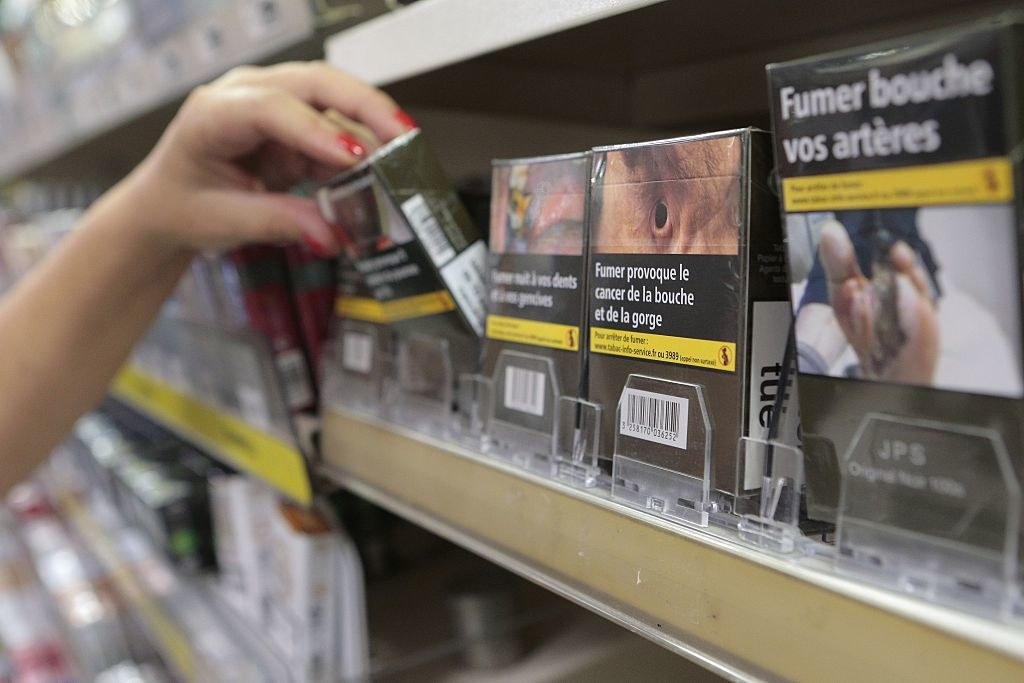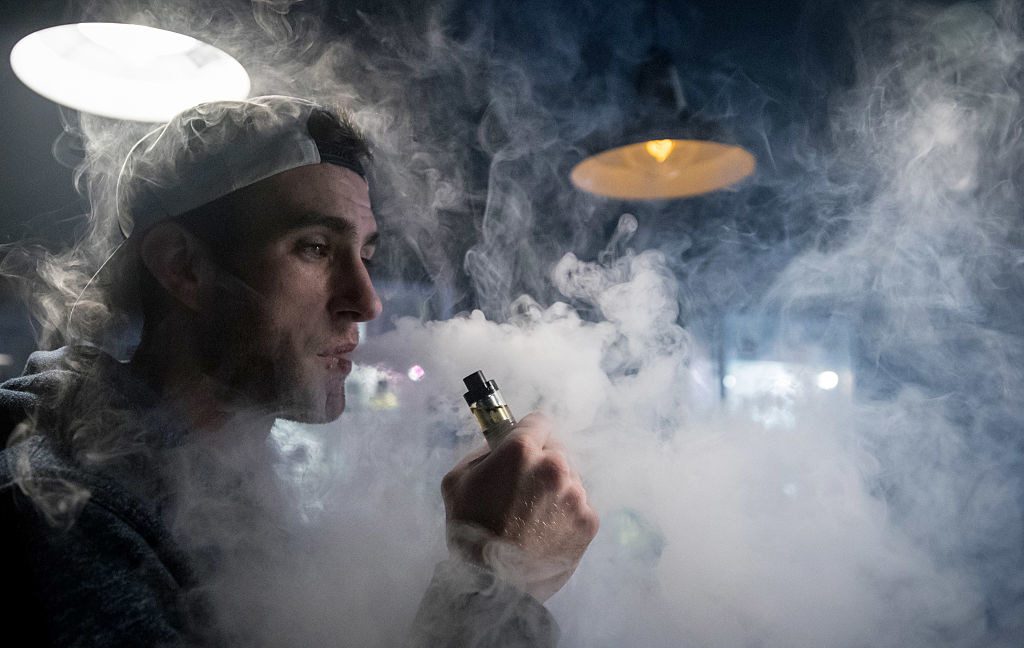From Sunday, selling a pack of cigarettes with branded packaging will be illegal in the UK.

That means cigarettes will no longer come in the familiar white and red of Marlboro or the white and purple of Silk Cut. Instead, they will all have to be sold in standardised packaging, aka "plain packs", with large, graphic illustrations of the health risks.
The legislation actually came in 12 months ago, but manufacturers and vendors were given a year to sell off their remaining branded stock.
Any cigarette manufactured after 20 May last year, and any cigarette sold after 21 May this year, has to be sold in the new packs.
We're not the first country to introduce this measure – Australian cigarettes have been sold in plain packs since December 2012. And since the law was passed here, several other countries have followed suit.

Among them are Hungary, Ireland, New Zealand, Malaysia, and France. In several countries the tobacco industry threatened legal action, but the moves went ahead.
We asked three scientists who specialise in addiction and tobacco, and they all said that the evidence strongly suggests that standardised packs will reduce smoking levels, and save lives.
Ann McNeill, a professor of tobacco addiction at King's College London, recently led a Cochrane review – a major, highly respected assessment of all the evidence on a topic – into the effects of plain packaging.
She told BuzzFeed News she expects the introduction of plain packs to reduce the number of smokers in the UK by 300,000, and said that could be an underestimate. "We reviewed all the evidence to date on plain packs," she said. "At the time only Australia had introduced it, and only quite recently.
"But still, we found evidence that packs could reduce the number who smoke."
It's probably only going to help a small number of people to actually quit. But the hope is that it will make it less likely for young people to take up smoking in future.

"What we couldn’t look at is the impact on children who will grow up in an environment without tobacco imagery," McNeill said. "That may take much longer to have an effect, so we may find that it’s a greater impact than we've so far seen [in Australia].
"We do know that branded packs are very attractive to younger people, so one would expect that when you strip that away people are less likely to take up smoking."
Dr Suzi Gage, a psychologist and epidemiologist at the University of Liverpool, agreed. "Eye-tracking studies suggest that people pay more attention to health warnings on plain packs than other ones," she told BuzzFeed News – but, she said, that was more true for non-smokers than regular smokers. "Maybe once you’re established as a smoker, these packs won’t have such an effect, but it’ll prevent people taking it up," she said.
Either way, it's probably only going to be a relatively small effect. But it's part of a wider raft of measures intended to bring smoking levels down.
"We need to be careful not to overstate the importance of any single tobacco control policy," Marcus Munafo, a professor of biological psychology at Bristol University who specialises in addiction. "The efforts have been successful because we’ve built a portfolio of measures that help people reduce smoking. This is important, but it's not a silver bullet."
Twenty years ago, he says, there were machines in pubs that made it impossible to prevent children buying cigarettes. Single cigarettes, aimed at (usually young) people without the money to buy larger packs, could be bought in shops, there were adverts on TV and billboards, and health warnings were small and unobtrusive. And, of course, you could smoke in indoor public places like pubs. "Because these measures were introduced gradually, we don’t necessarily feel the impact of them, but if you look at where we are now there’s a clear change," he says.
Also, even a small decrease in smoking rates could have a large impact on public health, because smoking is so extraordinarily bad for you.
"In England there are about 80,000 deaths per year as result of smoking," says McNeill. "It’s the single largest cause of preventable death. They kill more than all the other preventable forms of death put together.
"If cigarettes were invented today, they wouldn’t be on the market. They’re uniquely dangerous. People don’t understand how dangerous they are. The impact of even just 300,000 fewer smokers will be huge."
The scientists all said that since plain packs will probably mainly affect future generations, the next challenge is to help the people who already smoke to quit. They all said that e-cigarettes are probably going to be an important tool.

"We need to think of ways to get people to stop," says Munafo. "E-cigarettes can be helpful with that." He says that while no one thinks vaping is 100% safe, the risks are "drastically, an order of magnitude" lower than those of real cigarettes, but that message isn't necessarily getting through.
"All these negative messages about e-cigarettes can be unhelpful," he said. "If people get message that e-cigarettes are no better than smoking, which almost certainly isn’t the case, then they won’t switch. But if lots of people do switch, there’ll be an enormous public health benefit."
